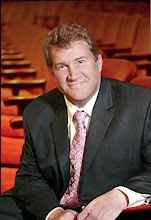 Mavericks owner Mark Cuban is to sports team ownership what Paris Hilton is to the entertainment industry. Oddly, we all know their names, but no one knows why! Cuban continues his ego driven rants while in legal trouble for insider trading. The wonderful Am Law Litigation Daily reports below.
Mavericks owner Mark Cuban is to sports team ownership what Paris Hilton is to the entertainment industry. Oddly, we all know their names, but no one knows why! Cuban continues his ego driven rants while in legal trouble for insider trading. The wonderful Am Law Litigation Daily reports below.The Am Law Litigation Daily
Edited by Susan Beck and Ben Hallman
July 20, 2009
SECURITIES / WHITE-COLLAR
Edited by Susan Beck and Ben Hallman
July 20, 2009
SECURITIES / WHITE-COLLAR
Dewey Dunks SEC in Mark Cuban Insider Trading Case
We're not sure how Dallas Mavericks owner Mark Cuban achieved celebrity status (quick, name another NBA owner), but we do find ourselves curiously drawn to his antics, especially his public fight with the SEC. (We particularly enjoyed the e-mail exchange http://editorial.incisivemedia.com/c/11MZPRPIBmUT2ODKxO between Cuban and an SEC lawyer, reported by The Wall Street Journal's Law Blog.) As you may recall, in November the agency charged Cuban with insider trading of the stock for Mamma.com. On Friday, Dallas federal district court judge Sidney Fitzwater awarded the feisty owner and his lawyers at Dewey & LeBoeuf a big "W." In tossing the suit, Judge Fitzwater agreed with the defense argument that Cuban violated no law when he traded 600,000 shares of his stock. "Trading on the basis of material, nonpublic information cannot be deceptive unless the trader is under a legal duty to refrain from trading on or otherwise using it for personal benefit," Judge Fitzwater wrote. Read the decision here http://editorial.incisivemedia.com/c/11MZV9Q6IOtLE4lGM5.
According to the SEC’s complaint, in 2004 Cuban bought a 6.3 percent stake in Mamma.com, a Canadian company that operated an Internet search engine. In the spring of 2004, Mamma.com decided to raise capital through an offering that would dilute the value of its stock, and it invited Cuban, then its largest known shareholder, to participate in the offering. The CEO of Mamma.com, Guy Faure, claims Cuban promised to keep this information confidential. Soon after learning this news, Cuban sold all of his Mamma.com shares, thus avoiding losses in excess of $750,000. After the sale, Cuban filed the required SEC disclosure statement.
The SEC accused Cuban of insider trading, based on his promise to keep the information confidential. But Cuban's lawyers argued that a confidentiality agreement alone is insufficient to establish misappropriation theory liability. Instead, the government must show that the agreement arises in the context of a preexisting fiduciary relationship, or creates a relationship that bears all the hallmarks of a fiduciary relationship. "There is no general prohibition on the trading of securities based on material, nonpublic information," they wrote in their motion to dismiss http://editorial.incisivemedia.com/c/11MZVz4rECi8Vf5ZyS. "Although the SEC has often argued that any recipient of material, nonpublic information has potential insider trading liability, the U.S. Supreme Court has repeatedly rejected the SEC's view. Instead, the Court has insisted that insider trading liability requires a showing of fraud."
Judge Fitzwater agreed. But the ruling wasn't a total loss for the SEC: The agency can amend its complaint and file again.
Cuban's defense team includes Dewey & LeBoeuf lawyers Lyle Roberts (who writes the 10b-5 Daily blog), Ralph Ferrara, Stephen Best, Henry Asbill, and Christopher Clark. "In the end, the court held that any attempt by the SEC, by rule or enforcement action, to impose insider trading liability on someone who does not agree to both preserve confidences and not use the confidential information for his own benefit must fail," the firm said in a statement.
--Ben Hallman
According to the SEC’s complaint, in 2004 Cuban bought a 6.3 percent stake in Mamma.com, a Canadian company that operated an Internet search engine. In the spring of 2004, Mamma.com decided to raise capital through an offering that would dilute the value of its stock, and it invited Cuban, then its largest known shareholder, to participate in the offering. The CEO of Mamma.com, Guy Faure, claims Cuban promised to keep this information confidential. Soon after learning this news, Cuban sold all of his Mamma.com shares, thus avoiding losses in excess of $750,000. After the sale, Cuban filed the required SEC disclosure statement.
The SEC accused Cuban of insider trading, based on his promise to keep the information confidential. But Cuban's lawyers argued that a confidentiality agreement alone is insufficient to establish misappropriation theory liability. Instead, the government must show that the agreement arises in the context of a preexisting fiduciary relationship, or creates a relationship that bears all the hallmarks of a fiduciary relationship. "There is no general prohibition on the trading of securities based on material, nonpublic information," they wrote in their motion to dismiss http://editorial.incisivemedia.com/c/11MZVz4rECi8Vf5ZyS. "Although the SEC has often argued that any recipient of material, nonpublic information has potential insider trading liability, the U.S. Supreme Court has repeatedly rejected the SEC's view. Instead, the Court has insisted that insider trading liability requires a showing of fraud."
Judge Fitzwater agreed. But the ruling wasn't a total loss for the SEC: The agency can amend its complaint and file again.
Cuban's defense team includes Dewey & LeBoeuf lawyers Lyle Roberts (who writes the 10b-5 Daily blog), Ralph Ferrara, Stephen Best, Henry Asbill, and Christopher Clark. "In the end, the court held that any attempt by the SEC, by rule or enforcement action, to impose insider trading liability on someone who does not agree to both preserve confidences and not use the confidential information for his own benefit must fail," the firm said in a statement.
--Ben Hallman




